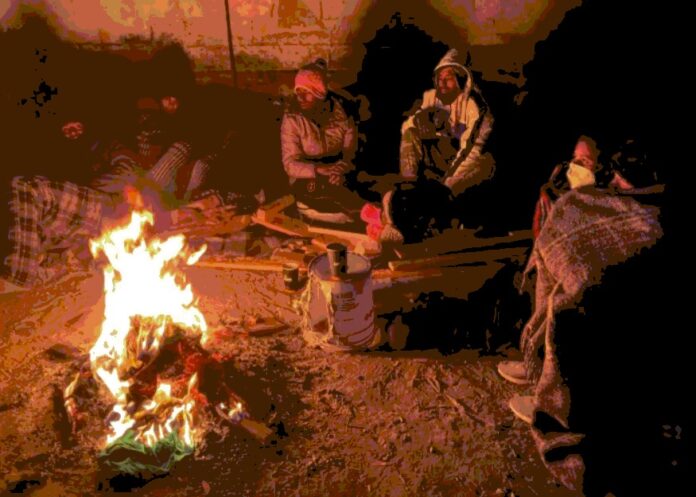
CIUDAD JUAREZ, CHIHUAHUA.- Hairdresser Grisel Garcés survived a harrowing, four-month journey from her native Venezuela through tropical jungles, migrant detention centers in southern Mexico, and then jolting railcar rides north toward the U.S. border.
Now on the Mexican side of the Rio Grande across from El Paso, Texas, she anxiously awaits a U.S. Supreme Court decision on asylum restrictions expected to affect her and thousands of other migrants at crossings along some 1,900 miles (3,100 kilometers) of the border from Texas to California. And she’s doing so while living outside as winter temperatures plunging over much of the U.S. and across the border.
She told of fleeing economic hardship only to find more hardship, such as now shivering through temperatures that have fallen into the 20s (below -1 Celsius) at night, colder than she’s ever experienced.
“You just turn yourself over to God’s mercy,” said Garcés, who left a school-aged daughter behind, hoping to reach the U.S. with her husband.
Their savings are exhausted, and some days they don’t eat. And on Thursday, Garcés waited and watched as hundreds of migrants formed a line to gradually pass through a gate in the border fence for processing by U.S. immigration officials. She fears immediate deportation under current asylum restrictions and doesn’t dare cross the shallow waters of the Rio Grande within view.
Dozens of migrants have been spending their nights on the concrete banks of the river, awaiting word of possible changes to the asylum restrictions put in place in March 2020. In El Paso, sidewalks serve as living quarters outside a bus station and a church for some migrants who can’t find space yet at an expanding network of shelters underwritten by the city and religious groups.
In Ciudad Juárez, a group of Venezuelan migrants huddled under blankets beside a bonfire in a dirt alleyway.
“We’re from the coast (of Venezuela) with lots of sunlight and the cold affects us,” said 22-year-old Rafael Gonzalez, a native of La Guaira on the Caribbean coast. “The shelter here is very full. … And that means it’s our turn to be here, having a little bonfire.”
Nearby, migrants from Venezuela and Central America sought refuge in a three-room shelter without beds, lying shoulder-to-shoulder among blankets on a concrete floor.
Pastor Elias Rodriguez of the Casa Nueva Voz ministry began repairing an abandoned building in recent weeks to open the shelter, after growing concerned about the emergence of a small “tent city” along the Rio Grande without even a water faucet.
“Outside there are people making fires, people waiting by the door because we only have 135 spaces,” Rodriguez said.
The Trump administration-era ban on asylum — Title 42 — was granted a brief extension by Supreme Court Chief Justice John Roberts this week. It’s not clear when the Supreme Court’s definitive decision will come. The Biden administration asked the court to lift the restrictions, but not before Christmas.
Under Title 42, authorities have expelled asylum-seekers inside the U.S. 2.5 million times and turned away most people who requested asylum at the border, on grounds of preventing the spread of COVID-19.
Title 42 applies to all nationalities but has most affected people from countries such as Mexico, Guatemala, Honduras, El Salvador, and, more recently, Venezuela.
Immigration advocates have sued to end the use of Title 42, saying the policy goes against American and international obligations to people fleeing persecution and is outdated now that coronavirus treatments have improved.
Conservative-leaning states appealed to the Supreme Court, warning an increase in migration would take a toll on public services and cause an “unprecedented calamity” with which they fear the federal government has no plan to deal.
Source: Diario.mx





